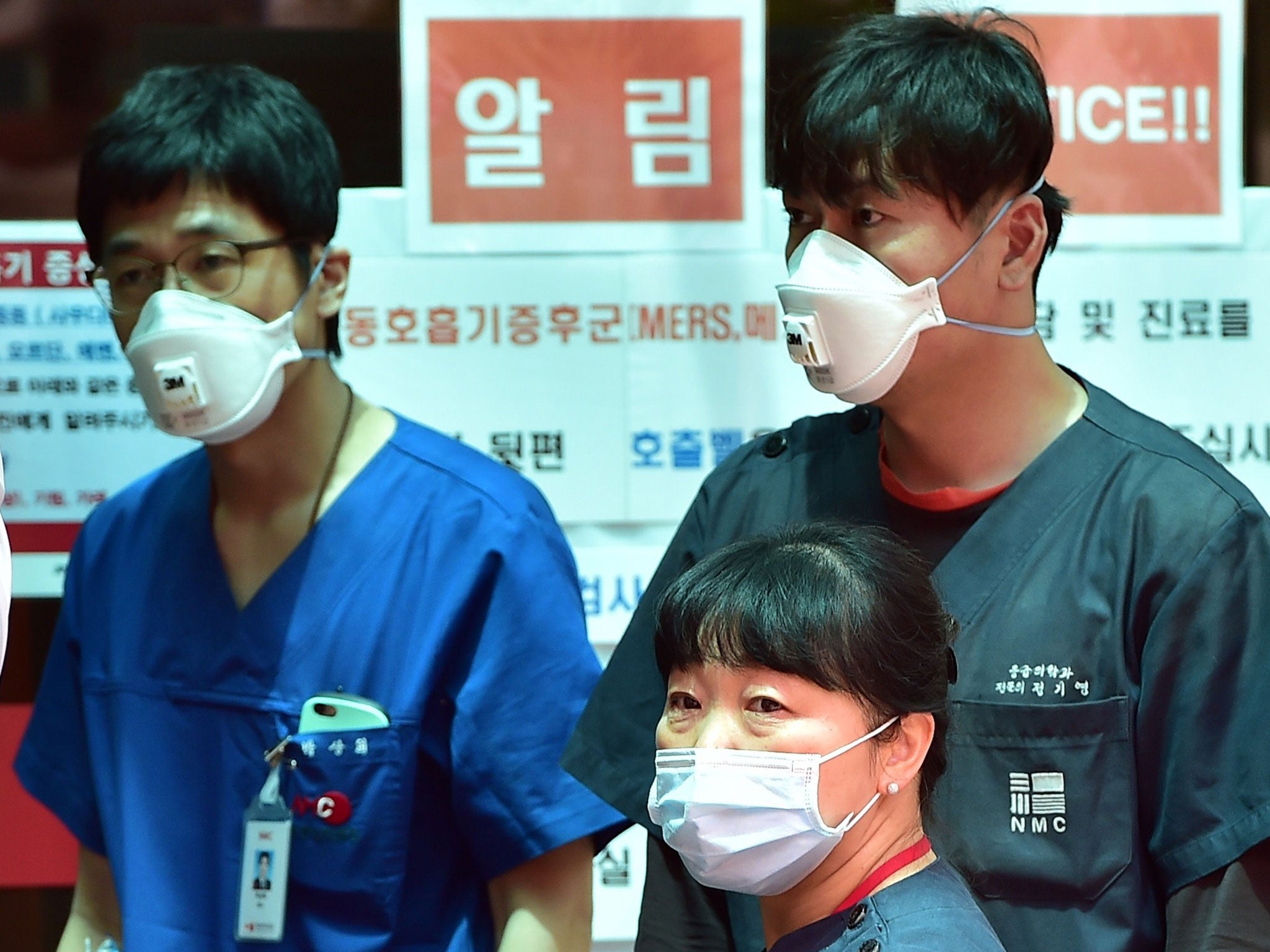Two die from Mers in South Korea
Mers is an emerging illness that is thought to originate in bats, and to have been passed on to humans by camels.

Your support helps us to tell the story
From reproductive rights to climate change to Big Tech, The Independent is on the ground when the story is developing. Whether it's investigating the financials of Elon Musk's pro-Trump PAC or producing our latest documentary, 'The A Word', which shines a light on the American women fighting for reproductive rights, we know how important it is to parse out the facts from the messaging.
At such a critical moment in US history, we need reporters on the ground. Your donation allows us to keep sending journalists to speak to both sides of the story.
The Independent is trusted by Americans across the entire political spectrum. And unlike many other quality news outlets, we choose not to lock Americans out of our reporting and analysis with paywalls. We believe quality journalism should be available to everyone, paid for by those who can afford it.
Your support makes all the difference.South Korea has reported the first two deaths from an outbreak of Middle East Respiratory Syndrome (Mers).
A 58-year-old woman who had contact with South Korea's first patient died of acute respiratory failure on Monday, the Health Ministry said. A 71-year-old man with a history of kidney ailments also died.
There have been 1,167 cases of Mers worldwide, of which 479 people have died, according to the European Centre for Disease Prevention and Control. South Korea now has the third highest number of cases after Saudi Arabia and United Arab Emirates, the organisation says.
Mers is an emerging illness that is thought to originate in bats, and to have been passed on to humans by camels. It can trigger respiratory infections that lead to pneumonia and, worse, kidney failure. The virus can be passed through close contact between people but is not easily contagious.
China reported its first Mers case last week in a South Korean man who tested positive after breaking a voluntary house quarantine, flying to Hong Kong and then to mainland China.
South Korean authorities are currently considering a ban on overseas travel for the 680 people that have been isolated for possible infection after coming into contact with those who have the infection.
The World Health Organisation said last week there had been no sustained human-to-human spread in South Korea, and that it was not recommending screening of passengers or the imposition of travel or trade restrictions. But the news of two deaths could change that.
Join our commenting forum
Join thought-provoking conversations, follow other Independent readers and see their replies
Comments